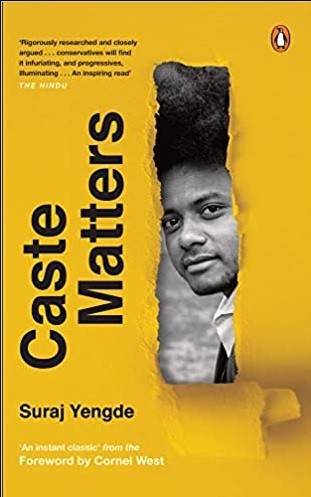Caste system is one contribution of India to the world. We not only have four Varnas but in those Varnas we have thousands of castes. Suraj Yengde in his debut book “Caste Matters” dissects the caste system and provides an insight into various aspects of caste system. Being a Dalit himself, he presents a firsthand account of what it means to be a Dalit. He dwells on Dalit politics, different types of Dalits and how some of them by their actions are hampering the Dalit movement across India.
The book takes you through step by step giving you an understanding of what it means to be a Dalit and how you are expected to behave or act in a certain way in front of upper castes. It talks about different categories of Dalits and this section of the book is quite interesting and informative. This tells about the Author’s academic hold on the topic because it not only categorizes Dalits but also criticizes them for the harm, they are doing to the overall Dalit cause.
“Many educated Elite Dalits who failed to acknowledge the experience of caste are harmful and most often a burden on the community. Instead of paving path for subaltern Dalits to speak, these Dalits themselves become the spokesperson of the community.”
This book is a critique of “Brahminism”, which has spread across all castes in India. It simply is an attitude where you consider yourself superior or high up the hierarchy of caste system. Brahmin consider themselves at the top of the rung, but in other castes also a hierarchal system is formed where a specific sub caste is lower than the other and the one just above them consider themselves superior. The author points that this Brahmanical agency is everywhere, and the hierarchy is forced upon everyone, more so on Dalits.
Then there is a chapter on “Brahmin against Brahminism” where Suraj talks about the upper caste Brahmins standing up against the oppression of lower castes. He cites various examples where brahmins stood up against the injustice on Dalits, stood for their representation is political and social systems. The evil is not the upper caste Brahmin but the Brahmanical thought process which has spread in all the castes.
About The Author
Suraj Yengde is a Shorenstein Center inaugural post-doctoral fellow at the Harvard Kennedy School. He has worked with leading international organizations in Geneva, London and New York, and is associate editor of Caste: A Global Journal of Social Exclusion. His first book, Caste Matters, is forthcoming from Penguin Random House India.
Our Verdict
A great and informative read for anyone who wants to understand the caste and its impact on the people belonging to lower caste.
